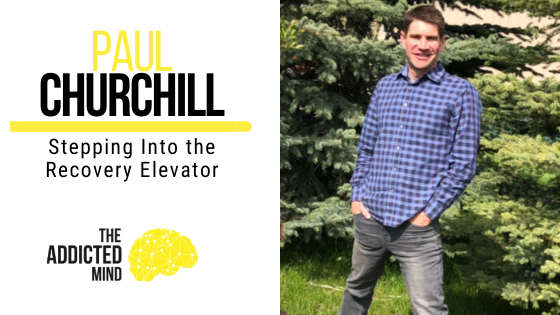Addictions are many things. But to simplify them, they represent parts of our personalities that are out of balance. They represent a part of our body, mind, soul, or spirit that needs a lot of attention and that was perhaps neglected in childhood.
As we continue using external substances, these imbalances get louder and louder until they have to be dealt with. Eventually, we get stuck in a cycle of shame and guilt that leads to hopelessness, something that Paul Churchill can truly relate to.
Paul Churchill was a normal drinker for about seven years since he was 15 years old. Soon, he found how the drug alcohol let him overcome his insecurities and fears in early childhood. He then found himself stuck in a ravenous cycle that gave him feelings of anxiety and hopelessness.
Addiction as an Adaptive Behavior
A lot of addictions, especially in modern society, are adaptive behaviors. In Dr. Gabor Maté’s book, In the Realm of Hungry Ghosts, he says that prior to modern times, there’s not much of a record of addiction. Most anthropologists agree with this.
The same can be said of depression, anxiety, autoimmune disorders, cancers, and inflammations. A lot of these health conditions are adaptations or representations of an environment that’s out of balance.
Therefore, it’s important to put yourself in an environment where you don’t need alcohol to live or to pacify your inner pains.
Overcoming Addiction Through Community and Accountability
How to depart from addiction is complicated but it can also be as simple as community and accountability. First, you have to open up to your spouse, your family, or the people closest to you. This creates accountability and with that comes community.
The main purpose of an addiction is to push us back towards the middle of the pack because we are on the periphery of the tribe struggling and isolating. Addiction is there to push us back into the support subsystem of the tribe or community where we can survive and thrive.
If you want to learn more about Paul Churchill’s recovery journey, check out Episode 139: Stepping Into the Recovery Elevator with Paul Churchill.

